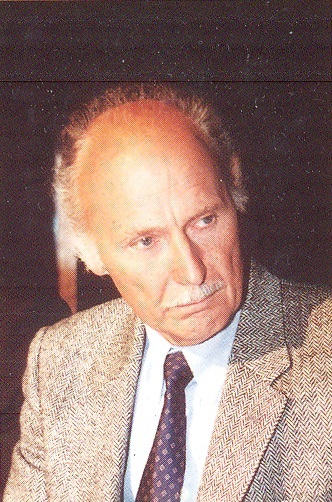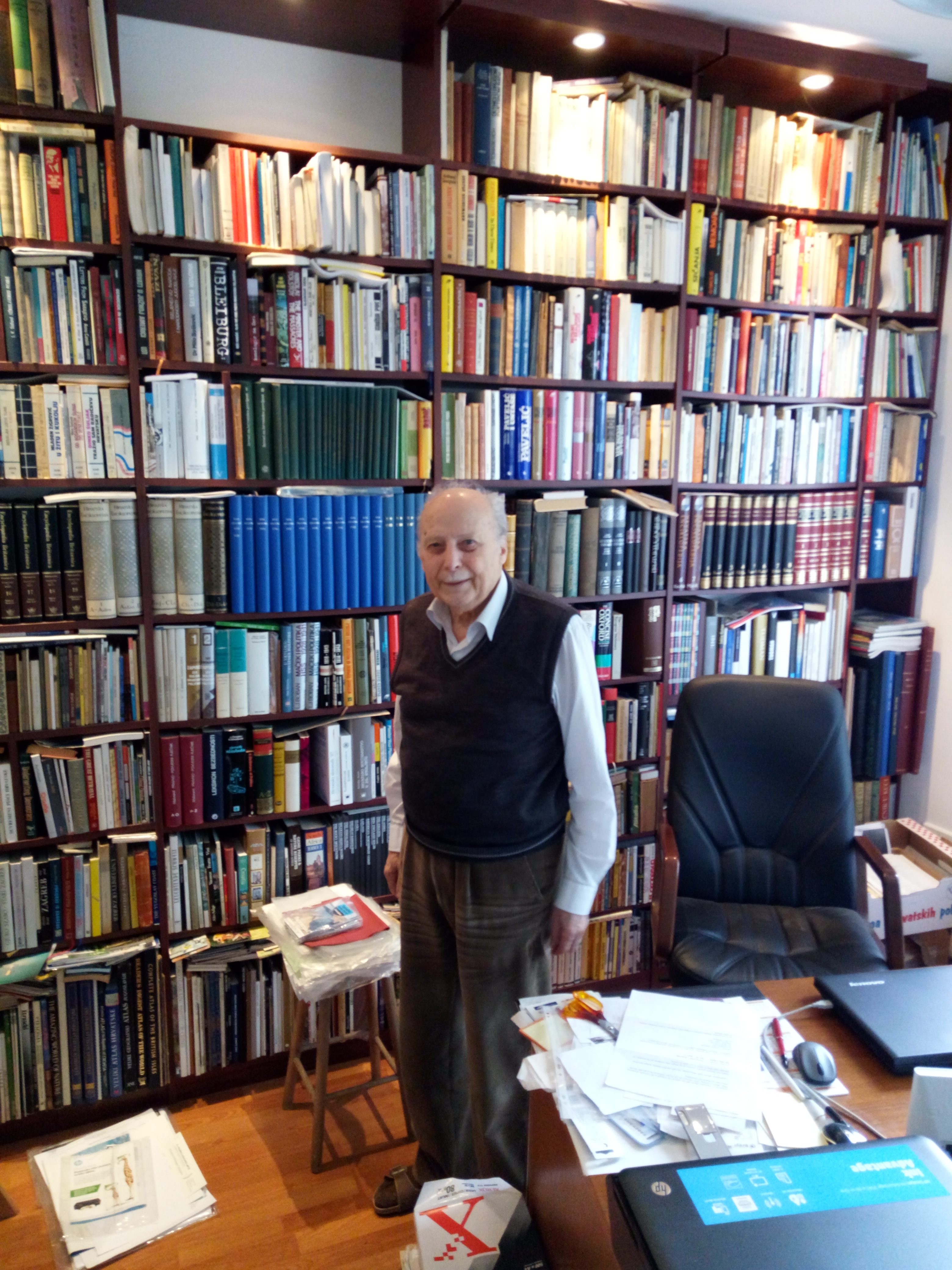Jakša Kušan, Croatian journalist and writer, was born in Zagreb on April 23, 1931. In 1950, he graduated from the Classical Gymnasium in Zagreb. As a pupil, he often came into conflict with philosophy teachers on ideological issues. At the University of Zagreb, as a law student, unlike most of his colleagues who wrote about Marx's texts for seminar papers, he was interested in topics related to the work of Rosa Luxemburg and Karl Kautsky. His persecution began when he defended a fellow student before the University’s Disciplinary Committee. As a result of his engagement, from the beginning of 1954, he was harassed by other students - members of Party organisations. Soon, he was put on trial at the University and was charged a small fine, so he left Zagreb and continued his studies at the University of Belgrade in 1954. In Belgrade, according to Kušan, there was a completely different atmosphere, and he did not feel such strict control as in Zagreb (Interview with Kušan, Jakša_2).
Even during his student days in Zagreb, he was part of a circle of young intellectuals who were dissatisfied with the closed socialist system in the Yugoslav state and the lack of cultural ties to Western countries. They organised an illegal organisation called the Croatian Resistance Movement (HPO), which had a political platform. Stanko Janović, Ivo Kujundžić, Tvrtko Zane (Branimir Donat) and his wife Zorka Bolfek were some of the members. They were also disappointed with the poor information Croatian émigrés and the Western public had about the situation in Croatia in Yugoslavia. They were also dissatisfied with the lack of Western criticism of the regime in Yugoslavia, and so they decided that someone from the group should go to the West and continue engaging in journalistic work there. Kušan agreed that he would be that person because he was already under surveillance by the Yugoslav secret police (UDBA) (Interview with Kušan, Jakša_1).
In May 1955, he left Yugoslavia via Italy, moved to The Hague, where he received a scholarship at the Academy of International Law. At the beginning of 1956, he moved to the UK and in London he continued his education at the London School of Economics and Political Science (1957-1961), but he did not complete his studies because he was too busy working as a journalist and editor (Interview with Kušan, Jakša ). In 1958, he was the founder of the periodical Hrvatski bilten (Croatian Bulletin), which was renamed Nova Hrvatska (New Croatia) in 1959. Although initially conceived as an informative overview of current events in Croatia, from the mid-1960s onward it became a critical and polemical magazine that published debates on the solution of the Croatian national question in Yugoslavia. The magazine was published until 1990, and had its most massive reach in Croatian emigrant communities (some issues even had a circulation of 20,000). Through Nova Hrvatska and throughout his work, Kušan advocated democratic and pluralistic principles and the freedom of the individual and freedom of peoples.
When he emigrated in 1955, he was not yet an advocate of pluralism or antagonistic toward socialism. He considered that, due to the character of the regime, it was impossible to expect the introduction of pluralism, but he believed that a big step would have been to allow factions within the Party. "I thought that it was necessary to expand the space for freedom within the League of Communists because Party members were then those who were responsible for doing something for their people" (Interview with Kušan, Jakša_2). Although he sharply criticised the communist regime, he also called on Croatian communists to resist the hegemony of centralists in Belgrade (Krašić 2016, 34). He advocated the need for reconciliation between nationalists and communists, and he felt that the radical methods used by some Croatian émigrés were not good. He constantly tried to prove that radical methods (terrorist attacks) were unacceptable to the world's political blocs, which preferred the preservation of Yugoslavia. He advocated a strategy of gradual development of democratic consciousness, co-operation among democrats, nationalists and reformist Croatian communists, and a transition to the rule of law throughout the Yugoslav federation. In that sense, he saw the mission of Nova Hrvatska - to "encourage democratisation within the League of Communists of Croatia, to reveal what was still hidden or censored in the homeland, to affirm the Croatian reform movement in the West to gain international sympathy and support" (Krašić 2016, 54). Even abroad, he was under surveillance by the UDBA.
After the fall of communism, he returned to Croatia in 1991 and became editor-in-chief of Hrvatski tjednik (Croatian Weekly) published by Matica hrvatska. In 1993, he became president of the board of directors of the Open Society Institute of Croatia, and from 2000 to 2004 he was chairman of the board of directors of the Croatian Heritage Foundation. He published his memoirs in 2000 in the book Bitka za novu Hrvatsku (The Battle for New Croatia).
He is familiar with the term/concept of cultural opposition. He thinks that the idea changed over time and that it has gained increasing importance (Interview with Kušan, Jakša_1).
He donated the archive and correspondence of the Nova Hrvatska editorial board to the National and University Library in Zagreb, but he still holds his papers at his home in Zagreb, which includes books, correspondence, brochures and photographs which testify to his oppositional activities.


